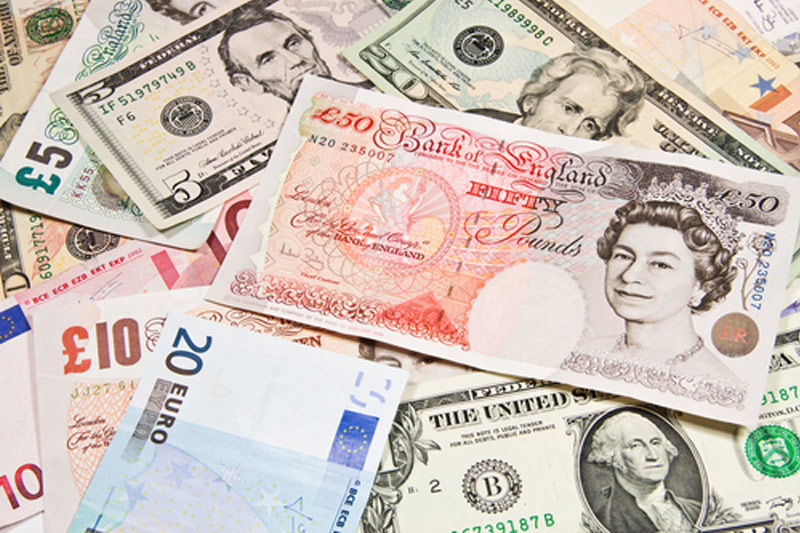Investing.com -- The dollar hit its highest level in two months early Friday in Europe, resuming its upward trend against both the euro and sterling after unconvincing performances on Thursday from both the European Central Bank and the U.K.’s new Prime Minister.
The dollar index, which tracks the greenback against a basket of developed-market peers, rose 97.627 during Asian trading and was hovering just below that level 4 AM ET (0800 GMT). That was its highest since late May.
The dollar’s rise is somewhat counter-intuitive, given that second-quarter gross domestic product figures for the U.S., due at 8:30 AM ET (1230 GMT), are expected to show a sharp slowdown in growth to an annual rate below 2%.
"A number below 2% would be the first reading that low since Q1 2017, and represent a meaningful deceleration," said John Velis, a currency strategist with BNY Mellon.
The dollar is partly the beneficiary of other currencies’ weakness. Brexit continues to cast shadows over both the pound and, to an increasing extent, the euro, after Prime Minister Boris Johnson’s first overtures to the EU were brusquely rejected by officials on Thursday.
Johnson has said that the Withdrawal Agreement hammered out by his predecessor Theresa May is dead. However, in a telephone call, outgoing European Commission President Jean-Claude Juncker rejected his demands for a renegotiation and said it was “the best and only deal possible.”
Sterling has bumped along at multi-year lows since the prospect of a “N-Deal” Brexit under Johnson became the central case scenario two months ago. A new paper by analysts at the Peterson Institute for International Economics argued that while Brexit will leave no country better off, it will hit the U.K. far harder than anyone else.
However, the Brexit effect on the euro is more recent. Clemens Fuest, the head of the Ifo think tank in Munich, told Bloomberg on Thursday that German manufacturing is “in freefall” and that he didn’t expect the decline to bottom out in the event of a No-Deal Brexit.
Sterling’s brief bounce after Johnson’s appointment has now completely reversed and the pound was heading back toward the two-year low it hit on Tuesday.
The euro, meanwhile, was treading water, roughly where it was before the ECB’s ‘all-talk-and-no-action’ governing council meeting Thursday. The euro zone’s central bank indicated it could ease policy substantially in September but disappointed hopes for a modest 0.1% cut in its deposit rate.
Elsewhere, the Turkish lira showed few ill effects of the sharp cut in interest rates from Turkey's central bank on Thursday. The 425 basis point cut to 19.75% in the CBRT's key rate was the largest since the country switched to inflation targeting in 2002, and was sharper than the 300 basis points called for by President Recep Tayyip Erdogan. The lira was at 5.6848 to the dollar, well within its recent ranges.
